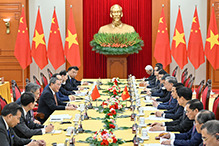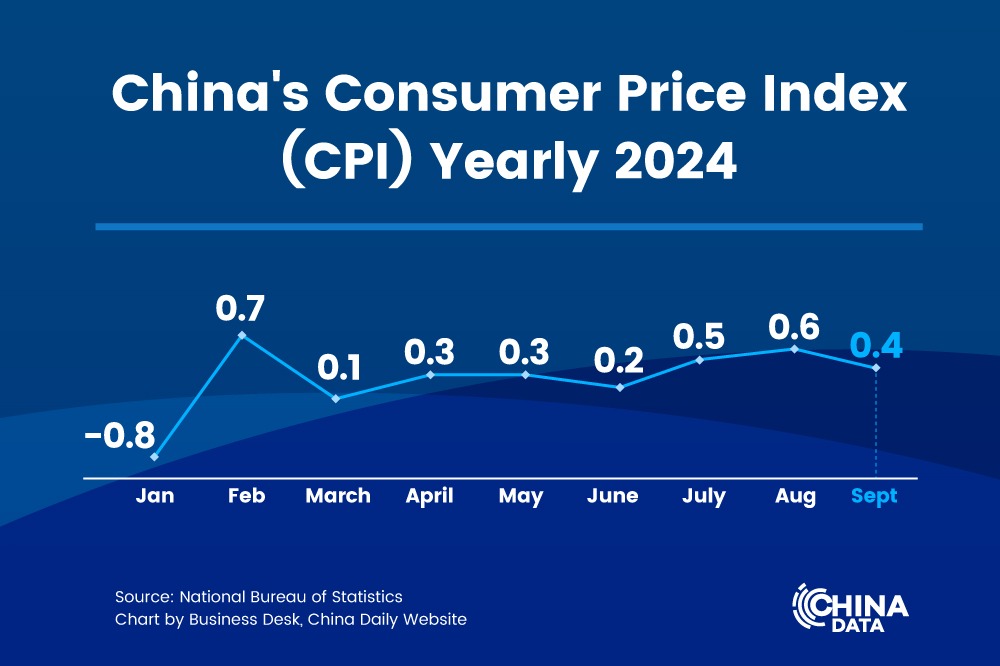China hailed as transformative force

China's achievements over the past 75 years have been nothing short of spectacular, said Danilo Turk, former president of Slovenia, highlighting China's role as a transformative force on the global stage, both economically and diplomatically.

In a recent interview with China Daily, Turk also praised the nation's contributions to addressing global challenges such as climate change and advancing international peacekeeping efforts.
"The founding of the People's Republic of China in 1949 marked the end of a century of humiliation and the beginning of an astonishing transformation," he said. "In the decades since, China has evolved into one of the world's leading powers, becoming a key player in global economic and technological progress."
China's development has reshaped global statistics and established the country as a major force in international affairs, according to Turk, who is president of Club de Madrid, a nonprofit organization that has more than 100 former heads of state and prime ministers as members.
He views the transformation as a "unique historical success", one that has allowed China to play a constructive role in key global issues, including international peace and security, as well as in the fight against climate change.
Having observed China's evolving role in the United Nations since the early 1970s, Turk hailed the country's responsible and prudent approach to international affairs. He noted how China has transitioned from being a "careful and responsible player" within the Group of 77 to a global leader.
"China's economic growth first transformed it into the factory of the world and then into a technological and financial powerhouse," he said, adding that this growth has had a profound impact on the global economy, allowing China to play a key role in multilateral cooperation and diplomacy.
Turk recalled China's critical role during the 2008 global financial crisis, when it provided decisive support to stabilize the world economy.
He described the China-proposed Belt and Road Initiative as a "new development opportunity for large parts of the world", emphasizing its contributions to infrastructure development and economic cooperation in multiple regions.
Reflecting on the strong diplomatic and economic ties between Slovenia and China, Turk highlighted how both countries have enjoyed a mutually beneficial relationship.
Slovenia, as a member of the European Union, has participated in the EU's well-established economic relations with China, he said, noting the significant potential for this relationship to deepen further in the years ahead.
"We would like to expand our trade cooperation, and Slovenia will make every effort to contribute to this," he said.
Turk emphasized that Slovenia and China have no major political disputes and maintain an exemplary level of cooperation within the UN framework.
With Slovenia currently serving as a nonpermanent member of the UN Security Council, he said that both countries have worked closely on sensitive issues related to international peace and security, learning from each other's perspectives and promoting common international causes.
Strengthening this relationship further, China recently took a significant diplomatic step, announcing visa-free entry for Slovenian citizens.
Turk expressed optimism about the future of Slovenia-China relations, particularly in areas where the two countries can collaborate on tackling global challenges. "Together, we (can) help promote progressive international causes," he said.
As the world faces increasingly complex challenges, including climate change, health crises and economic instability, Turk said he believes that China will continue to play a pivotal role in addressing these issues.
He praised China's efforts in developing affordable technological solutions to mitigate global warming and called on the world to be bolder in utilizing these innovations. "The world should be more courageous in utilizing Chinese technologies in this domain," he said.
Turk also emphasized the need for stronger multilateral cooperation, particularly within the World Health Organization, to address global health crises more effectively.
In the economic realm, he described China as a "bulwark of stability", especially as the world grapples with ongoing geopolitical conflicts such as the growing tensions in the Middle East and Ukraine and the potential for economic disruption. Should these conflicts lead to broader economic disruptions, Turk said he believes that the world will look to China as a key source of stabilization.
The former Slovenian president was in Beijing on Friday to attend the China International Friendship Conference, which marked the 70th anniversary of the founding of the Chinese People's Association for Friendship with Foreign Countries. He commended the organization for its significant role in promoting people-to-people exchanges and fostering mutual understanding between China and the rest of the world.
Over the decades, the association has played a crucial role in facilitating international cooperation and dialogue, helping to create deeper connections between individuals and nations.
"I have met many people who have learned about China through the CPAFFC's activities. Its role remains as important as ever, and there is a need to expand and diversify its partnerships with a wider variety of partners," he said.
Looking ahead, Turk encouraged the association to explore new areas of cooperation, particularly related to addressing global challenges such as climate change and promoting peace and security. He said he believes that these issues present an opportunity for the association to further expand its influence and strengthen global partnerships.
"My message to the CPAFFC is simple: Continue your good work, observe the changes in the world, and offer new themes for cooperation with an ever-growing number of partners," he added.




































